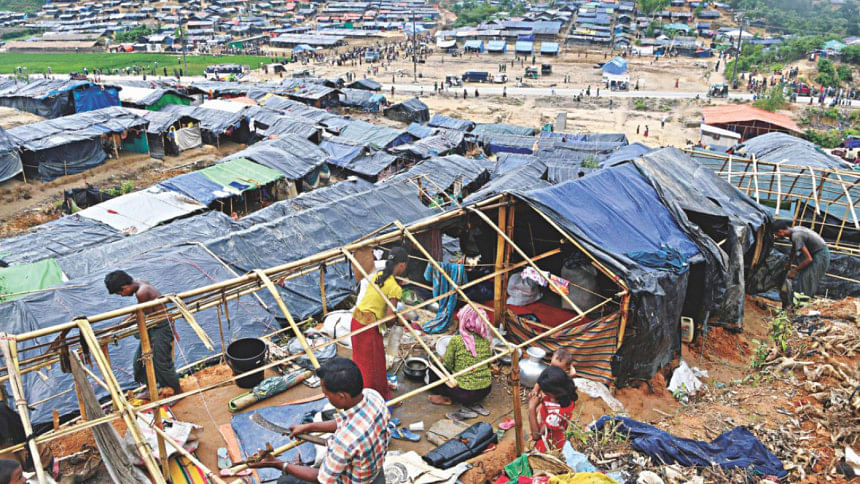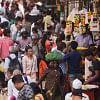Birth Control: Rohingyas lack awareness

Selina Begum, 22, started walking from Rohingya settlements in Thyankhali camp to collect some relief goods with her two-year-old daughter yesterday.
The woman started feeling labour pain mid-way and went to Balukhali Health Sub Centre instead. About half-an-hour later at 2:15pm, she gave birth to a boy.
At least 551 Rohingya babies have been born at different medical centres in Ukhia and Teknaf between August 25 and October 11. About 12 babies were born each day, according to Cox's Bazar civil surgeon office.
A similar, if not bigger, number of babies has been born in the settlements, officials at the civil surgeon office said, adding that many Rohingya women prefer to deliver at their shanties.
According to health ministry data, 18,523 pregnant Rohingya women, who have entered Bangladesh during the massive exodus, have been suffering from many health-related problems.
Officials are, meanwhile, struggling to distribute birth control tools among the refugees, majority of who are not willing to accept family planning.
"They are not interested at all in family planning. We often fail to convince them," Kalyan Pal, a field inspector of Department of Family Planning in Ramu, said.
At least 7,454 Rohingya women took antenatal service and 1,452 infants neonatal care from medics at health centres.
Pintu Bhattacharya, deputy director of Family Planning Department in Cox's Bazar, said, "Most of the Rohingya women do not know about family planning. When we first started to distribute birth control tools, we faced a tough challenge.
"We had to deploy 500 volunteers to create awareness among them. Some have started responding but the number is still negligible."
Family planning workers have administered 2,000 long acting birth control injections, distributed 1,500 pills and 1,000 condoms among Rohingyas, he said.
Aid workers said the reason behind the reluctance to adopt family planning can be traced to their willingness to increase their population size, superstitions and lack of education.
Dilara Begum, 25, a mother of four, said, "My husband knows everything. I do not know anything [about family planning]."
Momtaz Begum, another mother of three girls, said she would like to have boys. "My husband wants sons."
Regarding family planning, she said, "Health workers have told us about it. I will take an injection, but after having a son."
Nasrin Akhter Monika, filed coordinator of Research, Training and Management International Bangladesh, who have been working for 11 years with Rohingya refugees in Cox's Bazar, said, "There is no birth control service in Rakhaine State of Myanmar. Rohingyas are in dark about the services."
She said the government should focus more on this. "Mass awareness campaign is needed. Food and shelter has to be ensured first, the focus then should be on family planning."

 For all latest news, follow The Daily Star's Google News channel.
For all latest news, follow The Daily Star's Google News channel. 







Comments